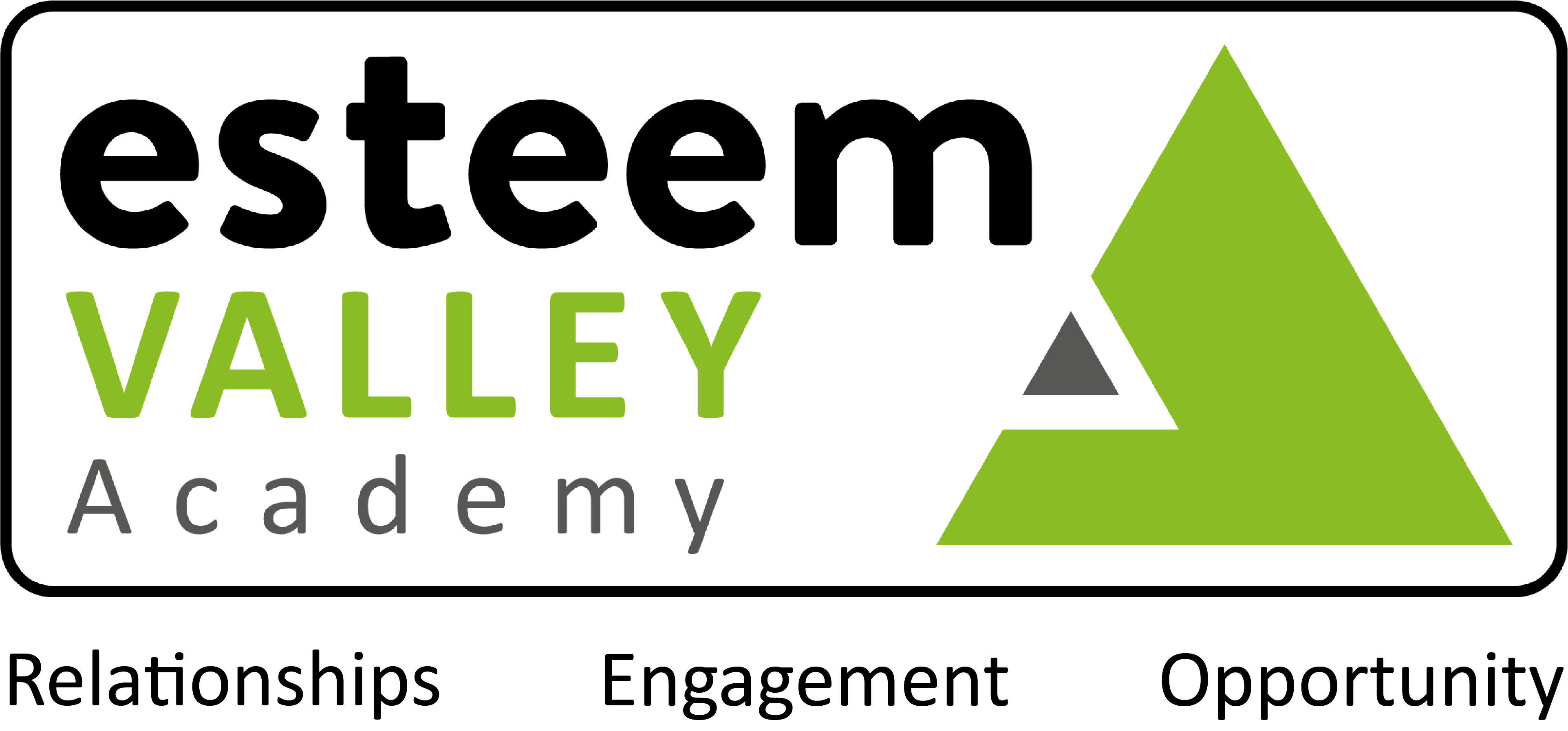RSE at Esteem Valley Academy
RSE at Esteem Valley Academy – Primary
From 2020, Relationships Education and Health Education is statutory in all primary schools.
Sex Education remains a recommended part of the primary curriculum but is not statutory.
Therefore, this is the only part of the curriculum from which you may withdraw your child.
In Primary Schools, Relationships Education will include learning about:
- Families and people who care for me
- Caring friendships
- Respectful relationships
- Online relationships
- Being safe
Health Education will include learning about:
- Mental wellbeing
- Internet safety and harms
- Physical health and fitness
- Healthy eating
- Drugs alcohol and tobacco
- Health and prevention
- Basic first aid
- Changing adolescent body
Alongside these newly statutory areas of the curriculum, there is existing statutory content in the National Curriculum for Science
Right to withdraw your child
You cannot withdraw your child from Relationships Education because it is important that all children receive this content, covering topics such as friendships and how to stay safe.
Esteem Valley Academy teaches Sex Education at primary through the PSHRE curriculum.
Topics covered are:
External genitalia and internal reproductive organs
Puberty, change hygiene and reproduction.
If you do not want your child to take part in some or all of the lessons on Sex Education, you can ask that they are withdrawn. At primary level, the Headteacher must grant this request.
The science curriculum, also includes content on human development, including reproduction, which there is no right to withdraw from.
RSE at Esteem Valley Academy – Secondary
Relationships and Sex Education
Relationships and Sex Education will build on the teaching at primary. It aims to give young people the information they need to help them develop healthy, nurturing relationships of all kinds. Esteem Valley Academy will cover content on what healthy and unhealthy relationships look like and what makes a good friend, colleague and successful marriage or committed relationship.
At the appropriate time, the focus will move to developing intimate relationships, to equip your child with knowledge they need to make safe, informed and healthy choices as they progress through adult life.
By the end of secondary school, pupils will have been taught content on:
- families
- respectful relationships, including friendships
- online media
- being safe
- intimate and sexual relationships, including sexual health
You can find further details by searching ‘relationships, sex and health education’ on GOV.UK.
Health Education
Health Education aims to give your child the information they need to make good decisions about their own health and wellbeing, to recognise issues in themselves and others, and to seek support as early as possible when issues arise.
By the end of secondary school, pupils will have been taught content on:
- mental wellbeing
- internet safety and harms
- physical health and fitness
- healthy eating
- drugs, alcohol and tobacco
- health and prevention
- basic first aid
- changing adolescent body
You can find further details by searching ‘relationships, sex and health education’ on GOV.UK.
Right to withdraw your child
You cannot withdraw your child from Health Education or the Relationships Education element of Relationships and Sex Education because it is important that all children receive this content, covering topics such as friendships and how to stay safe.
If you do not want your child to take part in some or all the Sex Education lessons delivered at secondary, you can ask that they are withdrawn.
The Headteacher will consider this request and discuss it with you, and will grant this in all but exceptional circumstances, up until three school terms before your child turns 16. At this age, your child can choose to receive Sex Education if they would like to, and the school should arrange for your child to receive this teaching in one of those three terms (unless there are exceptional circumstances).
